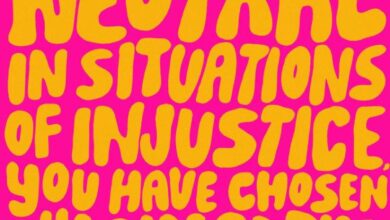Q&A with Hashim Coates | Former Democratic politco fights for Black- and Brown-owned cannabis businesses | News

When it comes to talking about minority business owners in the cannabis industry, longtime Democratic operative Hashim Coates wants to make sure Black Brown and Red Badged is front and center of the conversation.
The group, founded in 2019, represents Black and brown “red badge” holders, shorthand for those who own a licensed cannabis company. In February, BBRB hired Coates as its executive director.
We caught up with him to discuss his roots in the Colorado political scene, his vision for Black- and brown-owned cannabis businesses and his interest in the cannabis industry.
Colorado Politics: How did you come to be involved in the world of politics? Where did that all start off?
Hashim Coates: Basically my family. My grandmother and my mom worked in politics at the local volunteer level, my grandmother more so than my mom. My grandmother was a precinct captain, she worked with Arie Taylor to get her elected to the state House. And my mom was really active; she used to be the president of the Greater Park Hill Neighborhood Association so we were always involved in different community things. After I came back from the Navy, I began working but also wanted more community involvement, and I got involved with HIV/STD-prevention type of work, and from advocacy, that just grew. After doing that for a few years, I got involved with electoral politics in the Denver City Council race — she was at the time Nita Mosby Henry; she’s now Dr. Nita Mosby Tyler — when she was running for City Council. From there, I transferred over to working with One Colorado. I was involved real heavily in local politics with Arapahoe Dems and with the Aurora Human Relations Commission. But it wasn’t until 2014 when I really decided to focus on politics and campaigning as a full-time type of thing. I got involved with Andrew Romanoff’s congressional race, I worked on Morgan Carroll’s congressional race and was just along the politics pathway on different campaigns. I worked on Tay Anderson’s race, volunteered real hard with Phil Weiser’s race and I was approached to use those transferable skills and work with BBRB because of my connections and my experience, because the needs of the Black and brown business owners were not being addressed.
CP: So let’s walk that back a little bit and go from the start. What is BBRB and where is it at this stage?
Coates: BBRB stands for “Black, Brown and Red Badged,” and they represent the red-badged business owners of the cannabis industry. A lot of times people get that confused for those who are just badged to work in the industry, but they’re two separate issues, they’re two separate, distinct pros and cons of problems as well. BBRB focuses on the business needs of Black and brown businesses, what it takes to not necessarily enter and become a business owner but to maintain and be a business owner. People are finding out or have found out or will find out that it’s a lot easier, even though it’s hard to enter, it’s easier to enter than it is to sustain, and BBRB focuses on making sure that the businesses are sustained within the community.
CP: Expand on that. If I’m a BBRB member, what kind of challenges am I facing?
Coates: It’s the regulation challenges and access to capital is the main one. So if you have the mom-and-pop organizations that are fighting against the big Walmart organization, imagine adding another layer on top of that as far as being Black, as far as having businesses targeted for inspection more so than any other businesses in the cannabis industry. Imagine being denied loans or expansion or having a harder time finding investors because of the systemic challenges that we already have to fight. Then you add in the overlay of cannabis and the negative assumptions about cannabis, that “Oh, a Black person in cannabis, that must have been an X-Y-Z-type of person.”
CP: Let’s go back to the organization itself then. What are you bringing to the table, so to speak, for businesses that you represent?
Coates: Strength in numbers. I mean, it’s basically the mindset that unions have. It’s not really collective bargaining; there’s nothing to bargain about, but it’s about collective representation. It’s the experiences. We’ve had people that have been in the industry for over 10 years and the challenges that they’ve had to experience, the ups and downs, that is useful information for someone, a Black or brown businessperson, that just got their badge yesterday and they want to join the organization. Watch out for these pitfalls, make sure that your labeling is correct and make sure that you check all the boxes and dot all the I’s and cross all the T’s properly. It’s a library of resources or information of, “I went through this, you shouldn’t have to and this is how your business can go ahead and succeed without going through the pitfalls that I’ve gone through.”
CP: What does success look like to you when it comes to BBRB?
Coates: More Black and brown businesses in the industry and specifically a part of BBRB, but definitely in the industry. Success looks like, as we’re dealing with the social equity plans that are being implemented throughout the state, of them not just being there for veneer work — to make sure that they are truly about social equity. It looks like more Black and brown dispensaries throughout the state. It looks like more Black and brown social consumption lounges throughout the state. It looks like more Black and brown cannabis lobbyists. It doesn’t just stop as far as more Black and brown growers, it doesn’t just stop on a surface level thing that we look at cannabis being a part of, but more Black and brown lawyers that represent cannabis industry needs. And I know it’s all-encompassing, but definitely for our membership to grow and not just grow from an aspect of specifically Black and brown businesses but calling out those who really claim to be about social equity.
CP: So if that’s your end goal, what does the roadmap look like to get from the point where we’re at to that point?
Coates: The roadmap looks like doing more of the same. Still continuing to be present, fighting, elevating the needs for the businesses, making sure that the Black and brown businesses are still functioning next year, five years from now and that the ones that are here want to be here stay. The roadmap would be having more conversations with elected officials and some industry leaders as well, in the finance industry and the agriculture industry, saying, “These are the needs of Black and Brown businesses and this is what you can do to help.” So I guess it’s building not just allies, but more accomplices or more calling out for sincerity of people that want social equity, people that believe in inclusion. Having them put their actions, their money, and their resources where their mouth is.
CP: I do want to circle back to a couple of questions about you. I asked about how you came to be interested in politics. How’d you come to be interested in the marijuana space specifically?
Coates: It’s like the next frontier. I believe policy and electoral politics is the fastest route to change. So looking at the cannabis industry and hearing the news talking about how all this work is being done now for inclusion-type of work was kind of exciting to me and kind of made me raise an eyebrow. Why is this done now? Why wasn’t this done 10 years ago when efforts were being made to legalize cannabis in Colorado? I guess it is my desire to run towards the fight that prompted an interest for me in cannabis, and I really felt that now was the time to strike, to lend my experience in politics over to expand the access for Black and brown businesses. But I guess in a nutshell, since this is an article and not a dissertation, I just have a desire to run towards the fight. As my nieces and nephews say, I want all the smoke, no pun intended.
CP: A lot of what you’ve talked about in terms of your experience and talking about politics has been on the electoral side, how much interest do you have on the policy side? It seems like there’s a degree to which your job now goes towards policy, right?
Coates: I value policy, policy’s important, but it is the elected officials that get policy done. I’m sure there’s other ways in Colorado that you can lobby for policy, but in all those ways, it’s going to elected officials at some point, so I guess that’s why I talk about it more. But when I talk about HIV/STD prevention type of work, that was policy. That was largely and heavily policy because even though you have elected officials that said they were concerned about it, there was still some fear there. My work at One Colorado, when we were working for marriage equality, that was policy-based as well. But again, you need elected officials to get there. So I think they’re transferable skills and I definitely don’t walk into any situation feeling that I know everything, those are footsteps of a fool.
FAST FACTS:
How old are you? 45
Where’d you grow up? I’m born and raised in Denver.
What’s your favorite pastime? Listening to music — soul music, to be specific.
Give me a few of your favorite artists. Rachelle Ferrell, Aretha Franklin, Jill Scott, Maxwell, Donny Hathaway and The Clark Sisters. They’re gospel, not so much soul, but they are definitely one of my favorites as well too.
What do you do to kick back and relax? Sometimes it involves cannabis but I love traveling. Hawaii is one of my favorite destination spots, but that’s yearly. On the regular, hanging with family and friends.
First job out of high school? The United States Navy.
Favorite takeout spot during the pandemic? Welton Street Cafe. It has to be my favorite because if I live in Aurora and I’m driving all the way down to Five Points, there has to be something about it.
























































